Faced with the complicated situation of African swine fever in the North Central region, heavy rains causing pollution to the livestock environment, the Department of Agriculture and Rural Development of Ha Tinh province has issued a document to supplement disease prevention work.
Since August 2023, African swine fever has been complicated in localities across the country and the North Central region. Currently, the country has 125 outbreaks of African swine fever in 28 provinces and cities that have not passed 21 days; of which: Nghe An destroyed over 2,367 pigs, Quang Binh destroyed over 1,121 pigs.
Tan Lam Huong Commune (Thach Ha) set up an epidemic warning checkpoint at the entrance to Tien Thuong village and disinfected vehicles entering and exiting the village.
In Ha Tinh, from November 10 to November 30, 2023, African swine fever occurred in 39 households of 18 villages in the communes: Cam Duong, Cam Quan, Nam Phuc Thang (Cam Xuyen); Lam Trung Thuy (Duc Tho); Xuan Pho (Nghi Xuan), Trung Luong ward, Dau Lieu ward (Hong Linh town); Tan Lam Huong, Thach Ngoc (Thach Ha), causing 163 sick pigs to die and had to be destroyed, with a weight of 12,483 kg.
Through the actual inspection of the work of preventing and controlling African swine fever in localities, there are still some shortcomings and limitations: the disease occurs in small-scale livestock households, not thoroughly implementing safe livestock farming measures, raising many types of livestock together; livestock farmers have a subjective mentality towards disease prevention and control: when detecting sick pigs, they do not report to local authorities but call private veterinarians to treat them, people who buy pigs directly enter the barn before the epidemic occurs; in some localities, there has not been a drastic and synchronous implementation of disease prevention solutions, the solutions are still formal; in some localities, commune-level veterinary officers do not have professional qualifications, so they do not have a firm grasp of the disease situation, fluctuations in the total herd to advise on timely disease prevention solutions...
The epidemic situation across the country, especially in the North Central provinces, is becoming more complicated; in our province, prolonged heavy rains have flooded many livestock areas and barns, polluting the livestock environment; in addition, livestock households have increased their herds to meet the demand for the Lunar New Year; buying, selling and transporting activities have increased, dangerous infectious diseases in livestock and poultry, especially African swine fever, are at high risk of arising and spreading widely in the near future.
To proactively prevent and completely handle African swine fever, not allowing it to arise and spread widely, the Department of Agriculture and Rural Development requests the People's Committees of districts, cities and towns to direct specialized agencies and local authorities to synchronously and promptly deploy prevention and control solutions according to Decision No. 972/QD-TTg dated July 7, 2020 of the Prime Minister ; Official Dispatch No. 1097/CD-TTg dated November 16, 2023 of the Prime Minister; Official Dispatch No. 15/CD-UBND dated November 23, 2023 of the Provincial People's Committee on directing the prevention and control of livestock and poultry diseases and professional guidance documents of the veterinary sector; focusing on synchronously deploying a number of solutions as follows:
1. For localities with epidemics:
Strengthen the steering committee for livestock and poultry disease prevention and control at district and commune levels to assign specific tasks to members.
Organize inspection and strict control of trading, transportation, slaughtering activities and disinfect vehicles transporting animals and animal products on main traffic routes, feed, and livestock equipment. In particular, pay attention to managing and thoroughly handling excess animal feed at households where epidemics occur, and do not trade, transport, etc. outside.
Lam Trung Thuy Commune (Duc Tho) is actively preventing African swine fever.
Establish a council to handle the destruction of sick pigs, ensuring the accuracy of the quantity and volume of livestock destroyed, records, and procedures according to regulations. Review and require forces participating in the fight against the epidemic to apply personal protective measures, hygiene, disinfection, and decontamination to prevent the spread of disease during the process of handling, transporting, and destroying sick pigs. Take measures to handle the burial pits of sick pigs and surrounding areas to prevent the risk of spreading the disease to the environment.
Instruct livestock farmers to apply biosecurity measures, not to increase or re-raise herds without ensuring disease safety conditions to avoid damage; carry out sanitation, disinfection, sterilization of barns, livestock environments and related areas to ensure requirements and frequency; closely monitor the situation to promptly detect and handle new outbreaks.
2. Strengthen information and propaganda about the situation and developments of the epidemic; raise awareness and responsibility of breeders, traders, slaughterers... to proactively implement disease prevention and control measures; promptly report when detecting sick pigs, pigs that die of unknown causes, do not self-treat and sell sick pigs.
3. Establish inspection teams, assign specialized staff to closely follow the base to guide, direct, and closely monitor the disease situation in pig herds; take samples for diagnosis, testing, and timely treatment of sick pigs according to regulations (in case of sick sows or boars suspected of being sick, it is necessary to take samples to determine African swine fever and blue ear disease).
Spraying disinfectants to disinfect livestock areas in Xuan Pho commune (Nghi Xuan).
4. Deploy a general cleaning, disinfection, and sterilization of livestock environments in epidemic areas, high-risk areas in the area, old epidemic areas, animal and animal product trading markets, to be carried out simultaneously in December 2023.
5. Inspect, control, and strictly manage the trading, slaughtering, and transportation of animals and animal products in the area; strictly prohibit the import of livestock from other provinces into slaughterhouses without proper documentation and procedures; strictly handle violations according to the law.
6. Allocate funds and resources to ensure effective implementation of disease prevention, control and containment. Review and consolidate the veterinary staff system at all levels, arrange sufficient professional staff, ensure timely and effective implementation of disease prevention and control and assigned tasks in the area.
PV
Source


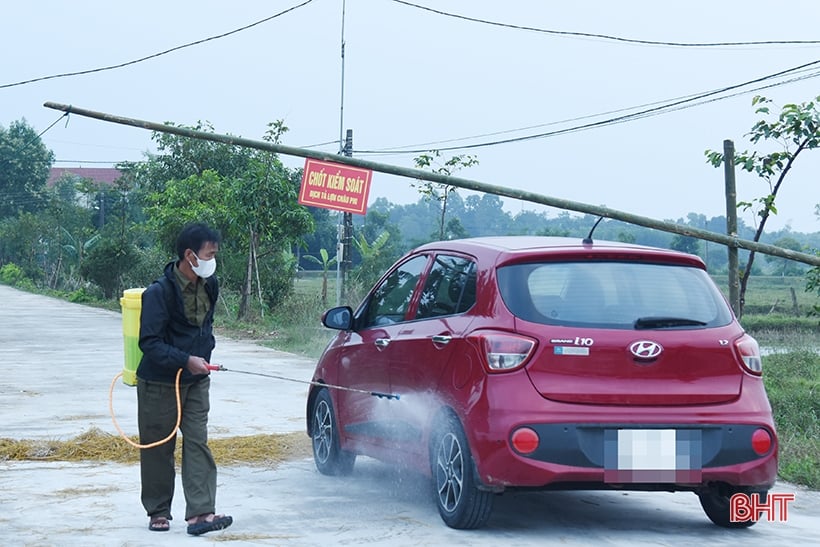
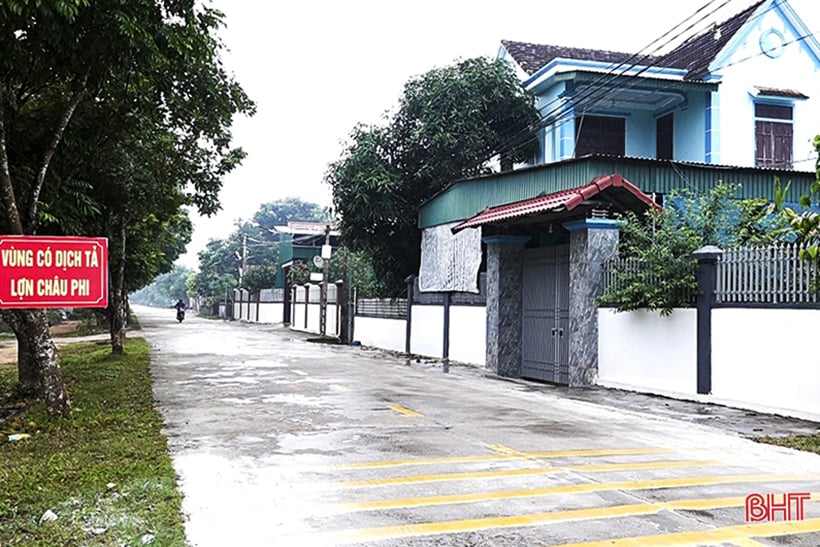
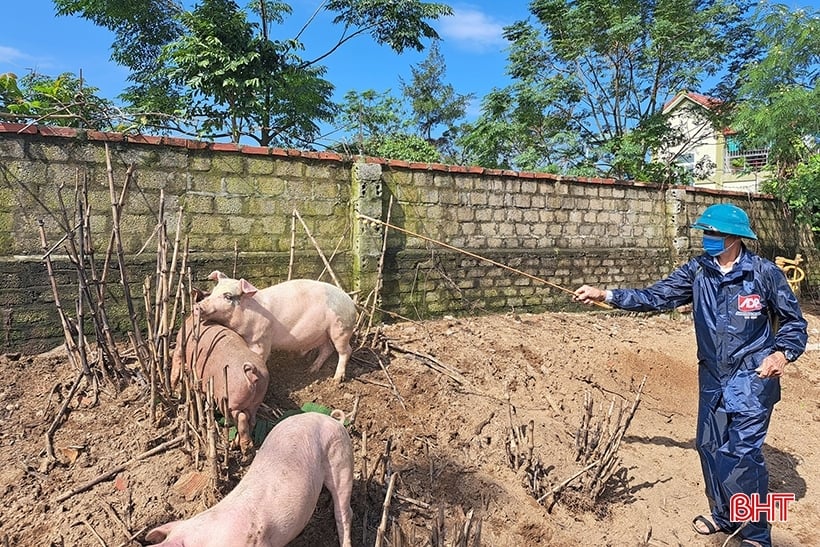
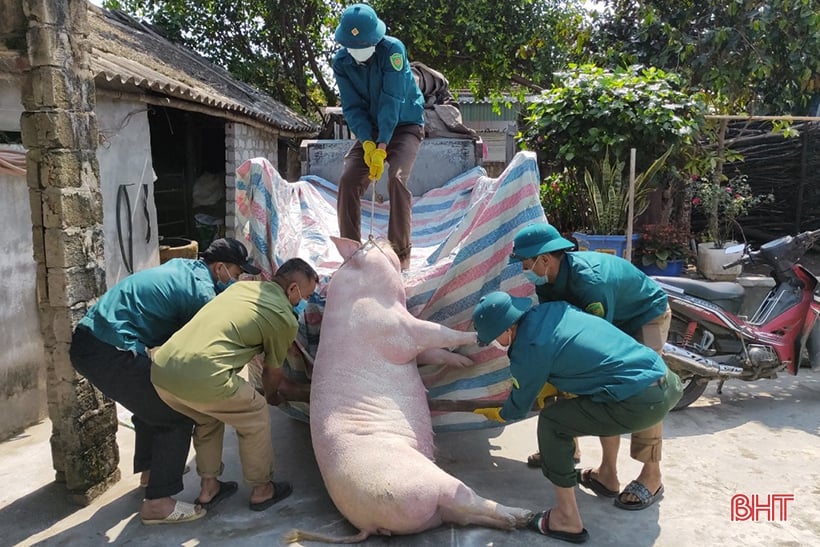
![[Photo] The 1st Congress of Phu Tho Provincial Party Committee, term 2025-2030](https://vphoto.vietnam.vn/thumb/1200x675/vietnam/resource/IMAGE/2025/9/30/1507da06216649bba8a1ce6251816820)


![[Photo] General Secretary To Lam, Secretary of the Central Military Commission attends the 12th Party Congress of the Army](https://vphoto.vietnam.vn/thumb/1200x675/vietnam/resource/IMAGE/2025/9/30/9b63aaa37ddb472ead84e3870a8ae825)
![[Photo] Solemn opening of the 12th Military Party Congress for the 2025-2030 term](https://vphoto.vietnam.vn/thumb/1200x675/vietnam/resource/IMAGE/2025/9/30/2cd383b3130d41a1a4b5ace0d5eb989d)
![[Photo] General Secretary To Lam receives US Ambassador to Vietnam Marc Knapper](https://vphoto.vietnam.vn/thumb/1200x675/vietnam/resource/IMAGE/2025/9/29/c8fd0761aa184da7814aee57d87c49b3)






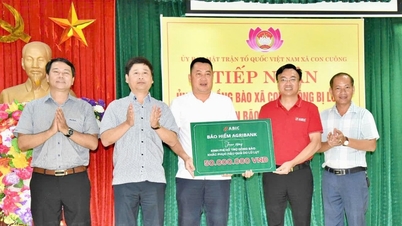

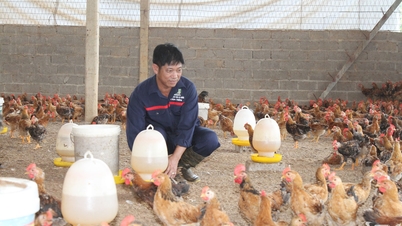


















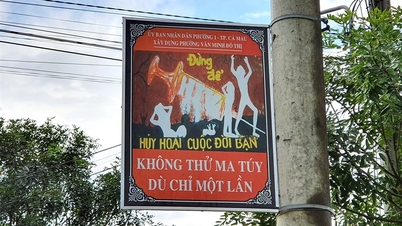
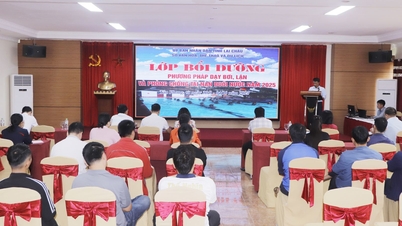
![[Photo] General Secretary To Lam attends the ceremony to celebrate the 80th anniversary of the post and telecommunications sector and the 66th anniversary of the science and technology sector.](https://vphoto.vietnam.vn/thumb/1200x675/vietnam/resource/IMAGE/2025/9/29/8e86b39b8fe44121a2b14a031f4cef46)
![[Photo] Many streets in Hanoi were flooded due to the effects of storm Bualoi](https://vphoto.vietnam.vn/thumb/1200x675/vietnam/resource/IMAGE/2025/9/29/18b658aa0fa2495c927ade4bbe0096df)











































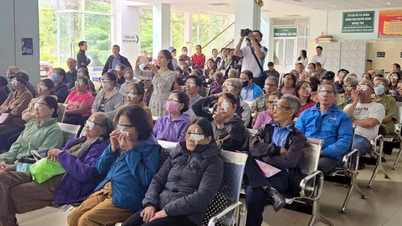



















Comment (0)